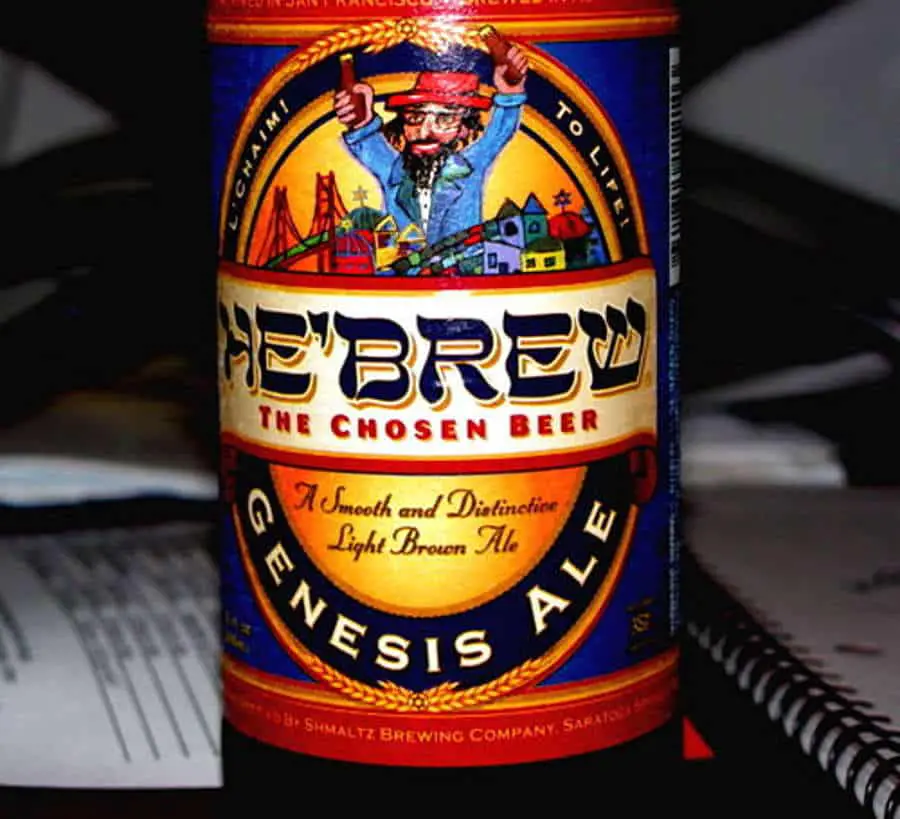I was having a conversation with a friend and the question of whether beer was kosher came up. Well, we thought we knew that answer. Then we wondered if home-brew beer would fall in the same camp. We were less sure there because each beer might be different, so I decided to find out.
So, is homemade beer kosher and can your Jewish friends drink yours? Yes, it is perfectly OK for a practicing Jew to drink your homemade beer.
In fact, most varieties of beer are deemed kosher because their raw ingredients (shop for your brewing ingredients on homebrewing.org). don’t violate kashrut, the Jewish dietary laws. However, some wheat and barley based yeast is considered “chometz” (leavened food) and may be unsuitable for Passover.
In the USA, Star-K is responsible for certifying domestic and imported beer as kosher or not. They are quite active in the beer making world because in recent times some local breweries and microbreweries have been less than open with what they really put in their beer.
It took me quite a while to find out the definitive answer to this question and on the way, I found out some more interesting information that I have shared with you below. It’s not as black and white as I first thought.
What is kosher?

Kosher is the English term given to food and drink that is in line with kashrut, the strict dietary laws followed by practicing Jews. It basically means whether something is fit for consumption or not by those of the Jewish faith.
What a person can eat from day to day was laid out in the halakha or Jewish law. It is something which has existed in its current state for many centuries. However, there have been several tweaks to Jewish laws and customs over the years as times have progressed and new modern considerations have arisen.
So, other items which are also kosher include beef, lamb, fish (with fins and scales) and most fruit and vegetables (free of insects). Food which is definitely off the menu includes pork, shellfish, and Cheeseburgers (You can’t mix meat and dairy!).
What makes my home brew qualify as kosher?
Home brewing of beer is perhaps the most natural way to make it. The ingredients are normally very basic, grains, water, yeast, and hops. One of the points of contention for strict Jews following their sacred laws when beer is concerned is whether or not it is flavored with something extra.
Most home-brewed beer is not flavored by anything other than hops. If, however, a person uses something other than this basic flavoring ingredient then their beer may no longer be considered kosher.
For example, it is possible for a brewer to add a lactose, or milk sugar, flavoring which may cause that batch to be deemed as no longer kosher. In any case, it would be reclassified as a dairy product thereafter by kashrut.
The key ingredient in beer is yeast and this is usually considered kosher as it is a fungus. However, because many brewers use a process of reusing spent yeast to inoculate new batches it may fall under the umbrella of chometz. Food that comes from grains and was typically mixed with water. It’s forbidden to consume such foods during religious Jewish holidays. So, no beer during Passover, please.
What commercial beers are kosher?
There are many beers which are categorized as kosher by organizations such as Star-K across the globe. As a general rule, any unflavoured beers and malt beers in Belgium, Canada, The UK, Germany, Mexico, Norway, and the Netherlands are considered kosher.
Some examples for North America can be found on the Star-K website.
However, if we can help it, we don’t want to buy our beer when we can make a much tastier beer at home!
What beer snacks can I serve that are also kosher?
So, you’ve invited your orthodox Jewish neighbors over for a first taste of your, newly verified, kosher home-brew. But what can you feed them?
Kosher doesn’t only apply to the foods themselves, it also means which foods are eaten together during the same meal.
For example, a cheeseburger isn’t considered kosher not because of the ingredients themselves, meat and dairy, but because they are served together. This isn’t permitted in halakha.
Even something as simple as a potato chip may not actually be considered kosher due to something in its preparation, such as frying or an ingredient. Luckily organizations such as Star-K do an excellent job and most reputable brands have full details of all the dietary needs they conform to. If in doubt, show the package to your friends and they can make the call.
Raw fruits and vegetables are going to be considered kosher as will nuts. So, peanuts with beer are a good bet but get the shelled kind just to be sure. An important thing to remember is not to mix kosher and non-kosher food on the same plate and not to prepare any kosher food with utensils you’ve EVER used on non-kosher food.
All in all, it’s best to go to a specialist shop or deli. Failing that, just come clean with your friends and ask them what you should buy. They will probably be happy to tell you exactly what they need.
Religious holidays
If every day kosher food requirements didn’t see enough to get your head around, be aware that the rules may change during religious Jewish holidays.
Judaism has some wonderful traditions and ceremonies. The story of Passover is a favorite one, even in many other religions such as Christianity and Islam.
To mark the occasion the dietary rules change and suddenly what may have been kosher last week are no longer deemed suitable. This, unfortunately, can mean the same for your home-made beer. It’s all because your beer is made from grain. As this plant has leaves and is prepared in the manner it is, it is no longer suitable for Passover. Luckily it only lasts for 7-8 days depending on the beliefs of the person.
Related questions:
Can a Muslim drink my homemade beer?
As a rule, Muslims do not drink alcohol. It is deemed to be haraam (forbidden) and najis (impure). Technically it is wine which is directly forbidden in the Quran but most practicing Muslims avoid all alcoholic beverages and products.
They do this for several reasons including the fact that alcohol and prayer don’t mix, it can be highly addictive, it clouds your intelligence, can give the wrong message to younger generations and may lead to criminality. However, many Muslims across the world do in fact drink alcohol. It really depends on their faith and the country they live in. But as a rule, you can offer your Islamic friend something non-alcoholic when they come to visit.
Can a Hindu drink my homemade beer?
In theory, yes they can. However, it is not something that every Hindu will do. Hinduism doesn’t have strict laws about alcohol as do other religions. It is a belief system based on dharma, the natural laws of the universe.
Most Hindus understand the powerful and sometimes negative effects of alcohol and will use it accordingly. So, the answer will depend on the individual. There is, however, a big tradition of brewing and drinking beer in India which may or may not have been connected with the British occupation of that country for more than a century. However, don’t be fooled into thinking Indian Pale Ale really came from India.
Can a Buddhist drink my homemade beer?
Again, there is no set rule forbidding the consumption of alcohol for the practicing Buddhist. In fact, it is not the drink itself which would pose the problem, it is the effects of alcohol which may be problematic.
The Fifth Precept of Buddhism tells its followers not to take intoxicates as this can cloud your mind and stop you from following the path towards enlightenment. Although not considered a sin in the Judeo-Christian sense, over-use or abuse of alcohol would be very counterproductive to the progress of a Buddhist along their karmic life path in their search for Nirvana.





